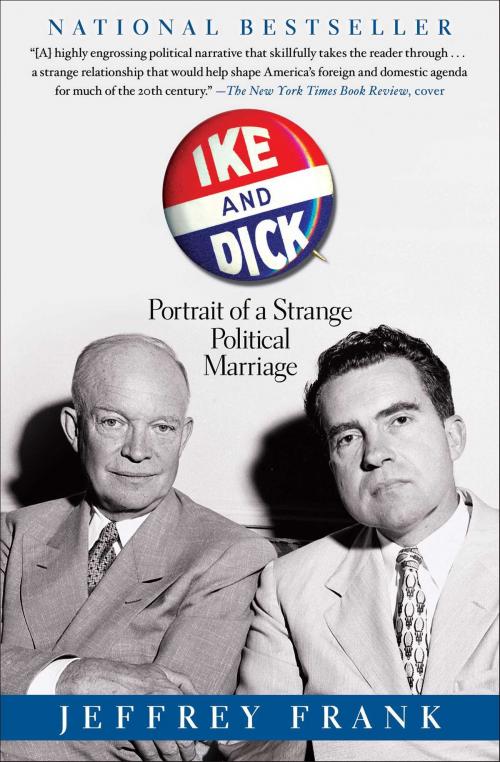| Author: | Jeffrey Frank | ISBN: | 9781416588207 |
| Publisher: | Simon & Schuster | Publication: | February 5, 2013 |
| Imprint: | Simon & Schuster | Language: | English |
| Author: | Jeffrey Frank |
| ISBN: | 9781416588207 |
| Publisher: | Simon & Schuster |
| Publication: | February 5, 2013 |
| Imprint: | Simon & Schuster |
| Language: | English |
Dwight D. Eisenhower and Richard Nixon had a political and private relationship that lasted nearly twenty years, a tie that survived hurtful slights, tense misunderstandings, and the distance between them in age and temperament. Yet the two men brought out the best and worst in each other, and their association had important consequences for their respective presidencies.
In Ike and Dick, Jeffrey Frank rediscovers these two compelling figures with the sensitivity of a novelist and the discipline of a historian. He offers a fresh view of the younger Nixon as a striving tactician, as well as the ever more perplexing person that he became. He portrays Eisenhower, the legendary soldier, as a cold, even vain man with a warm smile whose sound instincts about war and peace far outpaced his understanding of the changes occurring in his own country.
Eisenhower and Nixon shared striking characteristics: high intelligence, cunning, and an aversion to confrontation, especially with each other. Ike and Dick, informed by dozens of interviews and deep archival research, traces the path of their relationship in a dangerous world of recurring crises as Nixon’s ambitions grew and Eisenhower was struck by a series of debilitating illnesses. And, as the 1968 election cycle approached and the war in Vietnam roiled the country, it shows why Eisenhower, mortally ill and despite his doubts, supported Nixon’s final attempt to win the White House, a change influenced by a family matter: his grandson David’s courtship of Nixon’s daughter Julie—teenagers in love who understood the political stakes of their union.
Dwight D. Eisenhower and Richard Nixon had a political and private relationship that lasted nearly twenty years, a tie that survived hurtful slights, tense misunderstandings, and the distance between them in age and temperament. Yet the two men brought out the best and worst in each other, and their association had important consequences for their respective presidencies.
In Ike and Dick, Jeffrey Frank rediscovers these two compelling figures with the sensitivity of a novelist and the discipline of a historian. He offers a fresh view of the younger Nixon as a striving tactician, as well as the ever more perplexing person that he became. He portrays Eisenhower, the legendary soldier, as a cold, even vain man with a warm smile whose sound instincts about war and peace far outpaced his understanding of the changes occurring in his own country.
Eisenhower and Nixon shared striking characteristics: high intelligence, cunning, and an aversion to confrontation, especially with each other. Ike and Dick, informed by dozens of interviews and deep archival research, traces the path of their relationship in a dangerous world of recurring crises as Nixon’s ambitions grew and Eisenhower was struck by a series of debilitating illnesses. And, as the 1968 election cycle approached and the war in Vietnam roiled the country, it shows why Eisenhower, mortally ill and despite his doubts, supported Nixon’s final attempt to win the White House, a change influenced by a family matter: his grandson David’s courtship of Nixon’s daughter Julie—teenagers in love who understood the political stakes of their union.















